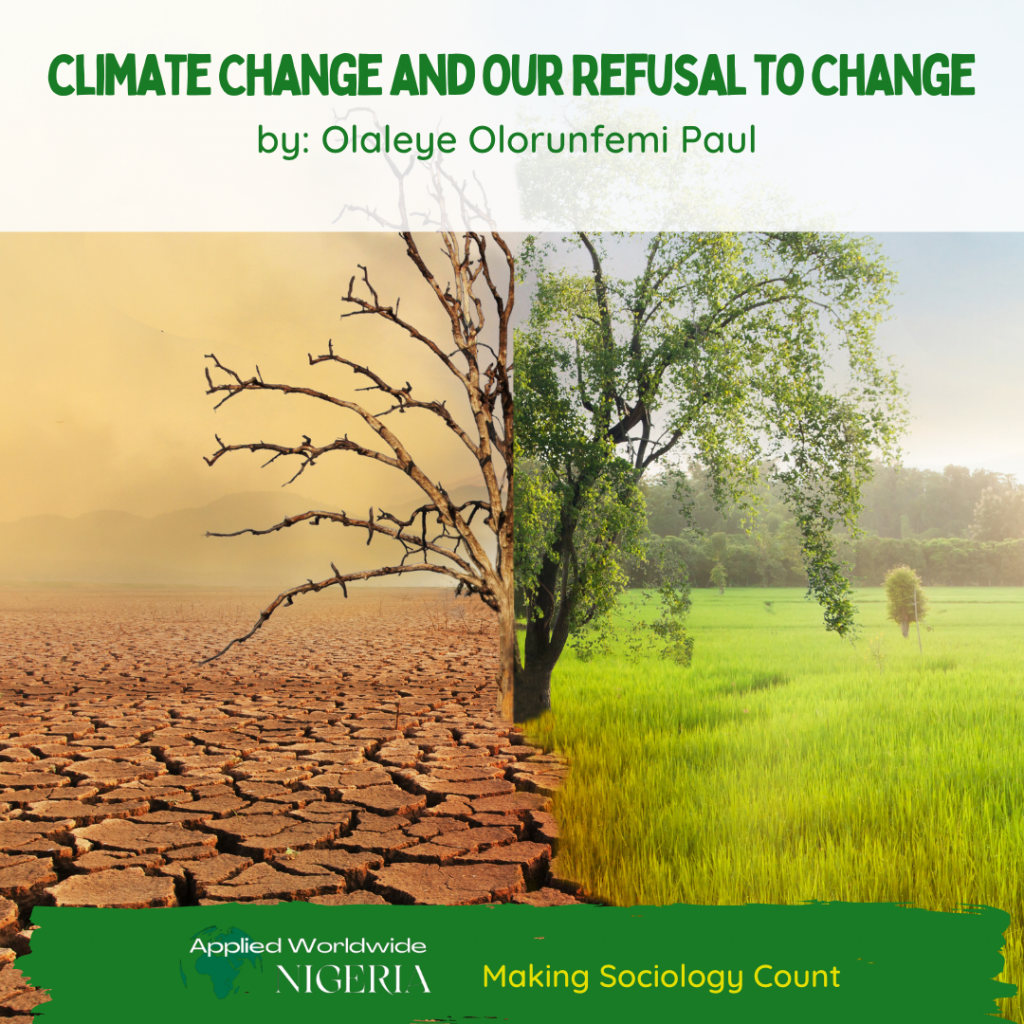For a long time, we’ve rejoiced at the arrival of the rain. We thank the heavens for opening up its taps to the earth, and we smile as our crops grow and the heat runs off into its hiding place. However, the rains no longer bring joy but loss.

In recent years, we’ve experienced the loss of lives, properties, and fortunes. The rainy season in Nigeria leads to the destruction of houses, farmlands, roads, and vital infrastructure. According to reports, Nigeria is suffering from its worst flooding crisis since 2012. Year after year, these disasters happen without an end in sight. Nigerians have so far questioned the role of the government in solving the current flooding crisis.
“What is the government doing to prevent the occurrence of flooding?”
“Can we soften the blows of climate change?”
To answer these questions, we’ll have to take a brief look at our history.
A mutual agreement with Cameroon
Forty years ago, Cameroon completed the construction of the Lagdo Dam sited in its northern region. Prior to the completion of the Lagdo Dam in 1982, Nigeria and Cameroon agreed for the Nigerian government to construct its dam. The 1980 agreement aimed to mitigate the flooding from the Lagdo Dam. In the following year, Nigeria designed plans for a shock-absorber dam called the “Dasin Hausa Dam.”
The Dasin Hausa Dam was supposed to provide a vast source of employment and prevent potential flooding incidents from the water released by Cameroon’s Lagdo Dam. The environmental project, if completed, would have provided over 300MW of electricity and irrigated over 150,000 hectares of land in Adamawa.
However, the Nigerian nature to abandon projects resides deep in our history—to understand a problem, you must examine its history. The dam was later abandoned in 1982, whereas the Lagdo dam commenced operations that year. Unfortunately, Nigerians are suffering the consequences of the government’s nonchalance and failure to heed its agreement.
Every year, Cameroon opens its Lagdo dam during the rainy season to release excess water, and the people who live along the River Benue path suffer its repercussions. Residents of Adamawa, Kogi, Benue, and other states in the northeastern and southern riverine regions experience the effects of Nigeria’s abandoned dam.
The Government’s Insouciance
If we exclude the government’s failure to complete the Dasin Hausa Dam, our leadership still takes sufficient blame for the disastrous nature of these floods. Climate change is a topic that’s always in the global news.
Since the 1970s, there have been World Climate Conferences. Nigeria’s leaders have attended these conferences and are aware of climate change’s effects, yet no lasting solution is in place to stop these floods. Each year, Cameroon sends a warning to the National Emergency Management Agency (NEMA) in Nigeria before the opening of the Lagdo Dam. Despite the warnings the agency receives, the disaster continues to strike. If Cameroon refuses to open the Lagdo Dam, Nigeria will suffer a worse fate as thousands of people may die from its effects.
The allocation of blame at each tier of government
NEMA claims to have sent reports and warnings to all 36 states in Nigeria earlier this year about the course of action to take to mitigate the effects of the flooding. Recently, the senior special assistant to the presidency on media indicated that each tier of government has a role to play in responding to the emergency. He stated that the state and local governments are the first responders in emergencies before the federal government intervenes.
However, the local government in Nigeria lacks real power and funding to manage large-scale emergencies. Claims made by the SSA to the presidency to absolve the federal government of blame don’t settle grieving hearts. In Nigeria, power is concentrated at the center, and pointing fingers in times of national emergency won’t solve problems. The people want to see government intervention and solutions to these disasters.
Effects of Climate Change in Present-Day Nigeria
Climate change’s effects are well known: from severe drought to the rise of sea levels around coastal towns. This year, Nigeria has suffered the effects of heavy rainfall, although floods occur yearly, this year’s disaster has been severe.
What happens when you mix negligence with a natural disaster? You get a catastrophe. Nigeria suffers from poor environmental planning and the effects of climate change.
A report by NEMA claimed floods have hit over 27 states, out of the 36 states in the country. The government has reported that over 500 lives have been lost and 90,000 homes are under water. At the moment, about 1.4 million people are suffering from the effects of the floods; thousands of people no longer have a place to sleep.
Rising fear over a potential food crisis in 2023
Nigerians on social media have expressed fear over the potential food crisis that might occur due to the heavy loss of farmlands. Several suggestions, such as buying rice in bulk before its price doubles in the coming months, have been made.
Panic arose over reports of the largest farm in Nigeria, Olam Rice Farm, and Mill, losing 4,500 hectares of farmland to the flood in Nasarawa. Meanwhile, farmers around the country have wailed over the loss of farmlands and crops worth millions of dollars.
Is there a solution in sight?
The solutions to our yearly flooding incidents aren’t impossible. What the people need is a government that’s ready to act rather than express “shock” over the losses suffered.
Firstly, the government needs to renovate its existing dams and complete the abandoned Dasin Hausa Dam. The completion of this dam will vastly reduce the yearly flooding incidents across the northeastern regions.
Secondly, all tiers of government should work hand in hand to ensure conventional town planning. Enforcement of town planning policies will prevent people from building houses on floodplains.
Additionally, states prone to floods must construct efficient drainage systems and flood canals. Strict policies should be enacted to prevent the irresponsible dumping of refuse and obstruction of drainage systems. Environmental agencies also need to raise awareness of the effects of deforestation on our environment.
To conclude, the Nigerian government has full responsibility for mitigating the effects of climate change. Folding hands and making observations won’t solve these annual disasters—change only begins when we act.







